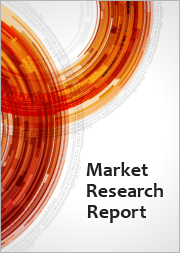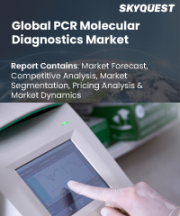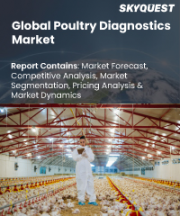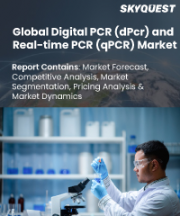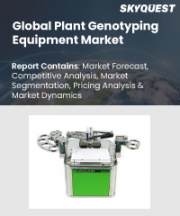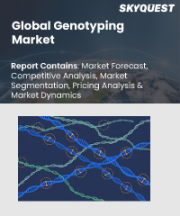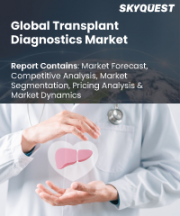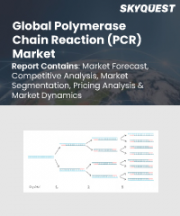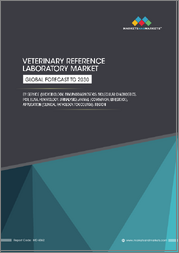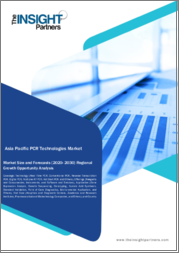
|
시장보고서
상품코드
1562194
아시아태평양의 PCR 기술 시장 예측(-2030년) : 지역별 분석 - 기술별, 제품별, 용도별, 최종사용자별Asia Pacific PCR Technologies Market Forecast to 2030 - Regional Analysis - by Technology, Offerings, Application, and End User |
||||||
아시아태평양의 PCR 기술 시장은 2022년 28억 3,520만 달러에서 2030년 54억 6,560만 달러로 성장할 것으로 예상되며, 2022년부터 2030년까지 연평균 8.6%의 CAGR을 기록할 것으로 추정됩니다.
PCR 기술에 대한 투자 급증과 자금 확보로 아시아태평양의 PCR 기술 시장 성장 견인
2023년, 전 세계 정부 및 연방 기관들은 유전체 기반 연구에서 정량적 중합효소 연쇄 반응(qPCR) 및 디지털 PCR(dPCR) 제품의 역할을 인식하고 있으며, RNA 기술의 선도적 혁신 기업인 Mirxes는 특히 암과 같은 조기 질병 검출을 위한 정확하고 비침습적이며 합리적인 가격의 혈액 기반 miRNA 검사 키트를 전문으로 하고 있으며, 시리즈 D 펀딩 라운드에서 5,000만 달러의 투자를 유치한 바 있습니다. 회사의 주요 제품인 GASTROClear는 위암을 조기에 발견하기 위한 PCR을 이용한 체외 진단 검사입니다. 미국 FDA로부터 획기적 장치로 지정됐습니다. 미국 FDA가 이러한 분류를 부여한 것은 위암 조기 진단을 위한 체외진단용 의약품 검사, 동남아시아의 분자 체외진단용 의약품 검사, 혈액 내 miRNA 검사로는 세계 최초입니다. 또한 유전자 합성을 강화하기 위해 연구개발 자금을 늘리고 있는 기업도 있습니다. 2022년 테마섹은 인도에 위치한 헬스 테크 사업인 몰바이오 진단(Molbio Diagnostics)에 8,500만 달러를 투자했습니다. HIV, 뎅기열, 말라리아, 간염, 결핵 등 다양한 질병에 대한 휴대용 진단 도구를 설계하는 몰바이오(Molbio)는 2021년 시리즈 E+ 펀딩 라운드에서 분자 진단 도구를 개발하는 중국 POC(Point-of-Care) 기업 Ustar가 약 260만 달러를 조달했습니다. Ustar는 조달된 자금의 일부를 주력 제품인 주력 제품인 고처리량 완전 자동 핵산 증폭 검사 장비의 효능을 향상시키는 데 사용할 예정입니다. 나머지 자금은 차세대 검사 플랫폼 개발, 검사 종류 확대, 가정용 중합효소 연쇄 반응(PCR) 검사 키트의 대량 생산에 사용될 예정입니다.
따라서, 질병 특이적 유전체학 연구개발에 대한 재정적 지원의 가용성이 높아지면서 PCR 기술에 대한 수요가 증가하고 있습니다.
아시아태평양의 PCR 기술 시장 개요
아시아태평양의 PCR 기술 시장은 중국, 일본, 인도, 한국, 호주 및 기타 아시아태평양으로 구분됩니다. 아시아태평양의 시장 성장의 주요 요인은 외국인 직접 투자 증가, 고도로 숙련되고 효율적인 노동력의 대규모 가용성, 생명공학 분야에 대한 높은 투자로 이어지는 정부 정책의 합리화입니다. 또한, 감염성 질환과 만성 질환의 증가, 정부 및 비정부 차원의 노력이 아시아태평양의 PCR 기술 시장 성장을 촉진하고 있습니다. 예측 기간 동안 중국의 PCR 기술 시장의 성장 전망은 고품질 헬스케어 제품에 대한 수요 증가, 중국 내 생활습관병 유병률 증가, 진단 기술 개발, 진단 센터 및 병원의 급격한 증가, 병원 내 의료 시설의 현대화 진행에 기인합니다. 중국에서 PCR 기술은 착상 전 유전자 진단(PGD), 암 치료, 비침습적 산전 검사(NIPT)에 사용되고 있으며, 2023년 2월에 발표된 '희귀질환의 날: 중국의 희귀질환 부담이 혁신의 기회가 될 수 있는 이유'에 따르면, 약 2,000만 명의 중국인이 희귀질환을 앓고 있습니다. dPCR 및 qPCR과 같은 PCR 기술은 이러한 희귀 질환의 진단 및 치료(치료 효과 모니터링)에 사용될 수 있습니다. 중국의 암 유병률 증가도 PCR 기술 시장의 성장에 기여하고 있으며, Global Cancer Observatory의 데이터에 따르면 2020년 중국에서는 460만 명의 암 환자가 보고되었습니다. 또한 중국에서는 암으로 인해 310만 명이 사망했습니다. 중국 PCR 기술 시장의 매출과 2030년까지 예측 금액(백만 달러)으로 볼 때, 중국 PCR 기술 시장은 2022년에 7억 7,623만 달러로 평가되며, 2030년에는 15억 4,521만 달러에 달할 것으로 예상되며, 예측 기간 동안 9.00%의 CAGR을 기록할 것으로 예상됩니다.
아시아태평양의 PCR 기술 시장 매출 및 2030년까지의 예측(금액)
아시아태평양의 PCR 기술 시장 세분화
아시아태평양의 PCR 기술 시장은 기술, 제품, 용도, 최종사용자 및 국가별로 세분화됩니다.
기술에 따라 아시아태평양의 PCR 기술 시장은 실시간 PCR, 재래식 PCR, 역전사, 디지털 PCR, 멀티플렉스 RTPCR, 핫스타트 PCR, 기타로 구분됩니다. 실시간 PCR 부문은 2022년 아시아태평양의 PCR 기술 시장에서 가장 큰 점유율을 차지했습니다.
제품 측면에서 아시아태평양의 PCR 기술 시장은 시약 및 소모품, 장비, 소프트웨어 및 서비스로 세분화됩니다. 시약 및 소모품 부문은 2022년 아시아태평양의 PCR 기술 시장에서 가장 큰 점유율을 차지했습니다. 또한 시약 및 소모품 부문은 시약, 바이알 크기 및 기타 소모품으로 분류됩니다. 또한, 바이알 크기는 0.2ml-2ml, 0.1ml-0.3ml, 2ml-5ml, 기타 바이알로 구분됩니다. 또한 장비 부문은 벤치탑 PCR과 휴대용 써모사이클러/PCR로 나뉩니다.
용도별로 아시아태평양의 PCR 기술 시장은 유전자 발현 분석, 유전자 시퀀싱, 유전형 분석, 유전형 분석, 핵산 합성, 표준 검증, 현장 진단, 환경 응용, 기타로 분류됩니다. 유전자 발현 분석 부문은 2022년 아시아태평양의 PCR 기술 시장에서 가장 큰 점유율을 차지했습니다.
최종사용자에 따라 아시아태평양의 PCR 기술 시장은 병원 및 진단 센터, 제약 및 생명공학 기업, 학술 기관 및 연구소, 기타로 분류됩니다. 병원 및 진단 센터 부문은 2022년 아시아태평양의 PCR 기술 시장에서 가장 큰 점유율을 차지했습니다.
국가별로 아시아태평양의 PCR 기술 시장은 중국, 일본, 인도, 호주, 한국 및 기타 아시아태평양으로 분류됩니다. 중국은 2022년 아시아태평양의 PCR 기술 시장을 장악했습니다.
Thermo Fisher Scientific Inc, Promega Corp, QIAGEN NV, bioMerieux SA, Hoffmann-La Roche Ltd, Bio-Rad Laboratories Inc, Becton Dickinson and Co, Takara Bio Inc, Standard Bio Tools Inc, Agilent Technologies Inc, Ellume Ltd 등이 아시아태평양의 PCR 기술 시장에서 활동하는 주요 기업입니다.
목차
제1장 소개
제2장 주요 요약
- 주요 인사이트
제3장 조사 방법
- 조사 범위
- 2차 조사
- 1차 조사
제4장 아시아태평양의 PCR 기술 시장 - 주요 산업 역학
- PCR 기술 시장 - 주요 산업 역학
- 시장 성장 촉진요인
- 유전병 및 감염증 유행 증가
- PCR 기술에 대한 투자와 자금 조달 급증
- 시장 성장 억제요인
- PCR 시스템의 고비용과 대체 어세이 이용 가능성
- 시장 기회
- 신흥 국가의 PCR 기술 채용 증가
- POC 검사에 대한 수요 증가
- 향후 동향
- PCR 기술의 진보
- 성장 촉진요인과 억제요인의 영향
제5장 아시아태평양의 PCR 기술 시장 : 시장 분석
- PCR 기술 시장 매출, 2020-2030년
제6장 아시아태평양의 PCR 기술 시장 분석 : 기술별
- 실시간 PCR
- 기존 PCR
- 역전사 PCR
- 디지털 PCR
- 멀티플렉스 RT PCR
- 핫 스타트 PCR
- 기타
제7장 아시아태평양의 PCR 기술 시장 분석 : 제품별
- PCR 기술 시장 : 매출 점유율, 제품별, 2022년·2030년(%)
- 시약·소모품
- 기기
- 소프트웨어와 서비스
제8장 아시아태평양의 PCR 기술 시장 분석 : 용도별
- PCR 기술 시장 : 매출 점유율, 용도별, 2022년·2030년(%)
- 유전자 발현 분석
- 유전자 배열 결정
- 유전자형 분석
- 핵산 합성
- 표준 밸리데이션
- POC(Point of Care) 진단
- 환경 용도
- 기타
제9장 아시아태평양의 PCR 기술 시장 분석 : 최종사용자별
- PCR 기술 시장 : 매출 점유율, 최종사용자별, 2022년·2030년(%)
- 병원 및 진단 센터
- 학술기관 및 연구기관
- 제약·바이오테크놀러지 기업
- 기타
제10장 아시아태평양의 PCR 기술 시장 : 국가별 분석
- 아시아태평양
- 중국
- 일본
- 인도
- 호주
- 한국
- 기타 아시아태평양
제11장 PCR 기술 시장 - 업계 상황
- PCR 기술 시장의 성장 전략
- 무기적 성장 전략
- 유기적 성장 전략
제12장 기업 개요
- Thermo Fisher Scientific Inc
- Promega Corp
- QIAGEN NV
- bioMerieux SA
- Hoffmann-La Roche Ltd
- Bio-Rad Laboratories Inc
- Becton Dickinson and Co
- Takara Bio Inc
- Standard Biotools Inc
- Agilent Technologies Inc
- Ellume Ltd
제13장 부록
ksm 24.10.25The Asia Pacific PCR technologies market is expected to grow from US$ 2,835.20 million in 2022 to US$ 5,465.60 million by 2030. It is estimated to record a CAGR of 8.6% from 2022 to 2030.
Surging Investments and Funds Availability for PCR Technologies Boost Asia Pacific PCR Technologies Market
Government and federal agencies worldwide recognize the role of quantitative polymerase chain reaction (qPCR) and dPCR products in genome-based research in 2023, Mirxes, a leading innovator in RNA technology, specializes in accurate, non-invasive, and reasonably priced blood-based miRNA testing kits for early disease detection, particularly cancer, raised US $50 million in a Series D funding round. The company's main offering, GASTROClear, is an in vitro diagnostic test that uses PCR to detect stomach cancer early on. It has been designated as a Breakthrough Device by the US FDA. This is the first time that the US FDA has given such a classification to an IVD test for early diagnosis of stomach cancer, a molecular IVD test from Southeast Asia, and a blood miRNA test worldwide. Some companies have also increased their research and development funds for the enhancement of gene synthesis. In In 2022, Temasek contributed US $85 million to the healthtech business Molbio Diagnostics, located in India. Molbio designs portable diagnostic tools for a range of conditions, including HIV, dengue, malaria, hepatitis, and tuberculosis (TB). In 2021, in a Series E+ fundraising round, Ustar, a Chinese point-of-care (POC) business that creates molecular diagnostic tools, raised roughly US$ 2.6 million. Ustar will use a portion of the funds raised to improve the effectiveness of their flagship high-throughput, completely automated nucleic acid amplification test instrument. The remaining funds will go into developing a next generation testing platform, increasing the variety of tests offered, and mass-producing polymerase chain reaction (PCR) testing kits for home usage.
Therefore, the increasing availability of financial support for research and development in disease-specific genomics propels the demand for PCR technologies.
Asia Pacific PCR Technologies Market Overview
The Asia Pacific PCR technologies market is segmented into China, Japan, India, South Korea, Australia, and the Rest of Asia Pacific. The market growth in Asia Pacific is mainly attributed to the increasing foreign direct investments; the large availability of highly skilled, efficient workforces; and streamlining government policies resulting in high investments in the biotechnology sector. In addition, increasing cases of infectious and chronic diseases, and government and non-government initiatives fuel the growth of the PCR technologies market in Asia Pacific. The projected growth of the PCR technologies market in China during the forecast period is attributed to the increasing demand for high-quality healthcare products, growing prevalence of lifestyle diseases in the country, rising developments in diagnostics technologies, surging number of diagnostic centers and hospitals, and the ongoing modernization of medical facilities in hospitals. In China, PCR techniques are used for preimplantation genetic diagnosis (PGD), cancer treatment, and noninvasive prenatal testing (NIPT). According to the article "Rare Disease Day: why China's Rare Disease Burden Could Be an Opportunity for Innovation," published in February 2023, ~20 million Chinese people suffer from rare diseases. PCR techniques such as dPCR and qPCR can be used in the diagnosis and treatment (to monitor treatment response) of such rare conditions. The rising prevalence of cancer in China also contributes to the PCR technologies market growth. According to the Global Cancer Observatory data, ~4.6 million cancer cases were reported in the country in 2020. In addition, cancer resulted in the death of 3.1 million people in China. China PCR Technologies Market Revenue and Forecast to 2030 (US$ Mn) In terms of value, the PCR technologies market in China was valued at US$ 776.23 million in 2022 and is projected to reach US$ 1,545.21 million by 2030; it is expected to register a CAGR of 9.00% during the forecast period.
Asia Pacific PCR Technologies Market Revenue and Forecast to 2030 (US$ Million)
Asia Pacific PCR Technologies Market Segmentation
The Asia Pacific PCR technologies market is segmented into technology, offerings, application, end user, and country.
Based on technology, the Asia Pacific PCR technologies market is segmented into real time PCR, conventional PCR, reverse transcription, digital PCR, multiplex RTPCR, hot start PCR, and others. The real time PCR segment held largest share of Asia Pacific PCR technologies market in 2022.
In terms of offerings, the Asia Pacific PCR technologies market is segmented into reagents & consumables, instruments, and software & services. The reagents & consumables segment held the largest share of Asia Pacific PCR technologies market in 2022. Further, reagents & consumables segment are categorized into reagents, vials size, and other consumables. Furthermore, vials size is segmented into 0.2ml to 2ml, 0.1 ml to 0.3 ml, 2 ml to 5ml, and other vials. Additionally, instruments segment is bifurcated into benchtop PCR, and portable thermocyclers/PCR.
By application, the Asia Pacific PCR technologies market is segmented gene expression analysis, genetic sequencing, genotyping, nucleic acid synthesis, standard validation, point of care diagnostic application, environmental application, and others. The gene expression analysis segment held the largest share of Asia Pacific PCR technologies market in 2022.
Based on end user, the Asia Pacific PCR technologies market is segmented hospitals & diagnostic centers, pharmaceutical & biotechnology companies, academic institutes & research laboratories, and others. The hospitals & diagnostic centers segment held the largest share of Asia Pacific PCR technologies market in 2022.
By country, the Asia Pacific PCR technologies market has been categorized into China, Japan, India, Australia, South Korea, and the Rest of Asia Pacific. China dominated the Asia Pacific PCR technologies market in 2022.
Thermo Fisher Scientific Inc, Promega Corp, QIAGEN NV, bioMerieux SA, Hoffmann-La Roche Ltd, Bio-Rad Laboratories Inc, Becton Dickinson and Co, Takara Bio Inc, Standard Bio Tools Inc, Agilent Technologies Inc, and Ellume Ltd are some of the leading companies operating in the Asia Pacific PCR technologies market.
Table Of Contents
1. Introduction
- 1.1 The Insight Partners Research Report Guidance
- 1.2 Market Segmentation
2. Executive Summary
- 2.1 Key Insights
3. Research Methodology
- 3.1 Coverage
- 3.2 Secondary Research
- 3.3 Primary Research
4. Asia Pacific PCR Technologies Market - Key Industry Dynamics
- 4.1 PCR Technologies Market - Key Industry Dynamics
- 4.2 Market Drivers
- 4.2.1 Rising Prevalence of Genetic and Infectious Diseases
- 4.2.2 Surging Investments and Funds Availability for PCR Technologies
- 4.3 Market Restraints
- 4.3.1 High Costs of PCR Systems and Availability of Alternative Assays
- 4.4 Market Opportunities
- 4.4.1 Increasing Adoption of PCR Techniques in Emerging Countries
- 4.4.2 Increasing Demand for POC Testing
- 4.5 Future Trends
- 4.5.1 Advancements in PCR Technologies
- 4.6 Impact of Drivers and Restraints:
5. PCR Technologies Market - Asia Pacific Market Analysis
- 5.1 PCR Technologies Market Revenue (US$ Million), 2020 - 2030
6. Asia Pacific PCR Technologies Market Analysis - By Technology
- 6.1 Overview
- 6.2 Real Time PCR
- 6.2.1 Overview
- 6.2.2 Real Time PCR Market, Revenue and Forecast to 2030 (US$ Million)
- 6.3 Conventional PCR
- 6.3.1 Overview
- 6.3.2 Conventional PCR Market, Revenue and Forecast to 2030 (US$ Million)
- 6.4 Reverse Transcription PCR
- 6.4.1 Overview
- 6.4.2 Reverse Transcription PCR Market, Revenue and Forecast to 2030 (US$ Million)
- 6.5 Digital PCR
- 6.5.1 Overview
- 6.5.2 Digital PCR Market, Revenue and Forecast to 2030 (US$ Million)
- 6.6 Multiplex RT PCR
- 6.6.1 Overview
- 6.6.2 Multiplex RT PCR Market, Revenue and Forecast to 2030 (US$ Million)
- 6.7 Hot Start PCR
- 6.7.1 Overview
- 6.7.2 Hot Start PCR Market, Revenue and Forecast to 2030 (US$ Million)
- 6.8 Others
- 6.8.1 Overview
- 6.8.2 Others Market, Revenue and Forecast to 2030 (US$ Million)
7. Asia Pacific PCR Technologies Market Analysis - By Offerings
- 7.1 Overview
- 7.2 PCR Technologies Market Revenue Share, by Offerings 2022 & 2030 (%)
- 7.3 Reagents and Consumables
- 7.3.1 Overview
- 7.3.2 Reagents and Consumables Market, Revenue and Forecast to 2030 (US$ Million)
- 7.3.2.1 PCR Technologies Market - Revenue and Forecast to 2030(US$ Million) - By Reagents and Consumables
- 7.3.2.1.1 PCR Technologies Market - Revenue and Forecast to 2030(US$ Million) - By Vial Size
- 7.3.2.1 PCR Technologies Market - Revenue and Forecast to 2030(US$ Million) - By Reagents and Consumables
- 7.4 Instruments
- 7.4.1 Overview
- 7.4.2 Instruments Market, Revenue and Forecast to 2030 (US$ Million)
- 7.4.2.1 PCR Technologies Market - Revenue and Forecast to 2030(US$ Million) - By Instruments
- 7.5 Software and Services
- 7.5.1 Overview
- 7.5.2 Software and Services Market, Revenue and Forecast to 2030 (US$ Million)
8. Asia Pacific PCR Technologies Market Analysis - By Application
- 8.1 Overview
- 8.2 PCR Technologies Market Revenue Share, by Application 2022 & 2030 (%)
- 8.3 Gene Expression Analysis
- 8.3.1 Overview
- 8.3.2 Gene Expression Analysis Market, Revenue and Forecast to 2030 (US$ Million)
- 8.4 Genetic Sequencing
- 8.4.1 Overview
- 8.4.2 Genetic Sequencing Market, Revenue and Forecast to 2030 (US$ Million)
- 8.5 Genotyping
- 8.5.1 Overview
- 8.5.2 Genotyping Market, Revenue and Forecast to 2030 (US$ Million)
- 8.6 Nucleic Acid Synthesis
- 8.6.1 Overview
- 8.6.2 Nucleic Acid Synthesis Market, Revenue and Forecast to 2030 (US$ Million)
- 8.7 Standard Validation
- 8.7.1 Overview
- 8.7.2 Standard Validation Market, Revenue and Forecast to 2030 (US$ Million)
- 8.8 Point of Care Diagnostics
- 8.8.1 Overview
- 8.8.2 Point of Care Diagnostics Market, Revenue and Forecast to 2030 (US$ Million)
- 8.9 Environmental Application
- 8.9.1 Overview
- 8.9.2 Environmental Application Market, Revenue and Forecast to 2030 (US$ Million)
- 8.10 Others
- 8.10.1 Overview
- 8.10.2 Others Market, Revenue and Forecast to 2030 (US$ Million)
9. Asia Pacific PCR Technologies Market Analysis - By End User
- 9.1 Overview
- 9.2 PCR Technologies Market Revenue Share, by End User 2022 & 2030 (%)
- 9.3 Hospitals and Diagnostic Centers
- 9.3.1 Overview
- 9.3.2 Hospitals and Diagnostic Centers Market, Revenue and Forecast to 2030 (US$ Million)
- 9.4 Academia and Research Institutes
- 9.4.1 Overview
- 9.4.2 Academia and Research Institutes Market, Revenue and Forecast to 2030 (US$ Million)
- 9.5 Pharmaceutical and Biotechnology Companies
- 9.5.1 Overview
- 9.5.2 Pharmaceutical and Biotechnology Companies Market, Revenue and Forecast to 2030 (US$ Million)
- 9.6 Others
- 9.6.1 Overview
- 9.6.2 Others Market, Revenue and Forecast to 2030 (US$ Million)
10. Asia Pacific PCR Technologies Market -Country Analysis
- 10.1 Asia Pacific: PCR Technologies Market
- 10.1.1 Overview
- 10.1.2 Asia Pacific PCR Technologies Market Revenue and Forecast and Analysis - By Country
- 10.1.2.1 China
- 10.1.2.1.1 Overview
- 10.1.2.2 China PCR Technologies Market Revenue and Forecast to 2030 (US$ Mn)
- 10.1.2.2.1 China PCR Technologies Market Breakdown by Technology
- 10.1.2.2.2 China PCR Technologies Market Breakdown by Offerings
- 10.1.2.2.2.1 China PCR Technologies Market Breakdown by Instruments
- 10.1.2.2.2.2 China PCR Technologies Market Breakdown by Reagents and Consumables
- 10.1.2.2.2.2.1 China PCR Technologies Market Breakdown by Vial Size
- 10.1.2.2.3 China PCR Technologies Market Breakdown by Application
- 10.1.2.2.4 China PCR Technologies Market Breakdown by End User
- 10.1.2.3 Japan
- 10.1.2.3.1 Overview
- 10.1.2.4 Japan PCR Technologies Market Revenue and Forecast to 2030 (US$ Mn)
- 10.1.2.4.1 Japan PCR Technologies Market Breakdown by Technology
- 10.1.2.4.2 Japan PCR Technologies Market Breakdown by Offerings
- 10.1.2.4.2.1 Japan PCR Technologies Market Breakdown by Instruments
- 10.1.2.4.2.2 Japan PCR Technologies Market Breakdown by Reagents and Consumables
- 10.1.2.4.2.2.1 Japan PCR Technologies Market Breakdown by Vial Size
- 10.1.2.4.3 Japan PCR Technologies Market Breakdown by Application
- 10.1.2.4.4 Japan PCR Technologies Market Breakdown by End User
- 10.1.2.5 India
- 10.1.2.5.1 Overview
- 10.1.2.6 India PCR Technologies Market Revenue and Forecast to 2030 (US$ Mn)
- 10.1.2.6.1 India PCR Technologies Market Breakdown by Technology
- 10.1.2.6.2 India PCR Technologies Market Breakdown by Offerings
- 10.1.2.6.2.1 India PCR Technologies Market Breakdown by Instruments
- 10.1.2.6.2.2 India PCR Technologies Market Breakdown by Reagents and Consumables
- 10.1.2.6.2.2.1 India PCR Technologies Market Breakdown by Vial Size
- 10.1.2.6.3 India PCR Technologies Market Breakdown by Application
- 10.1.2.6.4 India PCR Technologies Market Breakdown by End User
- 10.1.2.7 Australia
- 10.1.2.7.1 Overview
- 10.1.2.8 Australia PCR Technologies Market Revenue and Forecast to 2030 (US$ Mn)
- 10.1.2.8.1 Australia PCR Technologies Market Breakdown by Technology
- 10.1.2.8.2 Australia PCR Technologies Market Breakdown by Offerings
- 10.1.2.8.2.1 Australia PCR Technologies Market Breakdown by Instruments
- 10.1.2.8.2.2 Australia PCR Technologies Market Breakdown by Reagents and Consumables
- 10.1.2.8.2.2.1 Australia PCR Technologies Market Breakdown by Vial Size
- 10.1.2.8.3 Australia PCR Technologies Market Breakdown by Application
- 10.1.2.8.4 Australia PCR Technologies Market Breakdown by End User
- 10.1.2.9 South Korea
- 10.1.2.9.1 Overview
- 10.1.2.10 South Korea PCR Technologies Market Revenue and Forecast to 2030 (US$ Mn)
- 10.1.2.10.1 South Korea PCR Technologies Market Breakdown by Technology
- 10.1.2.10.2 South Korea PCR Technologies Market Breakdown by Offerings
- 10.1.2.10.2.1 South Korea PCR Technologies Market Breakdown by Instruments
- 10.1.2.10.2.2 South Korea PCR Technologies Market Breakdown by Reagents and Consumables
- 10.1.2.10.2.2.1 South Korea PCR Technologies Market Breakdown by Vial Size
- 10.1.2.10.3 South Korea PCR Technologies Market Breakdown by Application
- 10.1.2.10.4 South Korea PCR Technologies Market Breakdown by End User
- 10.1.2.11 Rest of Asia Pacific
- 10.1.2.11.1 Overview
- 10.1.2.12 Rest of Asia Pacific PCR Technologies Market Revenue and Forecast to 2030 (US$ Mn)
- 10.1.2.12.1 Rest of Asia Pacific PCR Technologies Market Breakdown by Technology
- 10.1.2.12.2 Rest of Asia Pacific PCR Technologies Market Breakdown by Offerings
- 10.1.2.12.2.1 Rest of Asia Pacific PCR Technologies Market Breakdown by Instruments
- 10.1.2.12.2.2 Rest of Asia Pacific PCR Technologies Market Breakdown by Reagents and Consumables
- 10.1.2.12.2.2.1 Rest of Asia Pacific PCR Technologies Market Breakdown by Vial Size
- 10.1.2.12.3 Rest of Asia Pacific PCR Technologies Market Breakdown by Application
- 10.1.2.12.4 Rest of Asia Pacific PCR Technologies Market Breakdown by End User
- 10.1.2.1 China
11. PCR Technologies Market-Industry Landscape
- 11.1 Overview
- 11.2 Growth Strategies in the PCR Technologies Market
- 11.3 Inorganic Growth Strategies
- 11.3.1 Overview
- 11.4 Organic Growth Strategies
- 11.4.1 Overview
12. Company Profiles
- 12.1 Thermo Fisher Scientific Inc
- 12.1.1 Key Facts
- 12.1.2 Business Description
- 12.1.3 Products and Services
- 12.1.4 Financial Overview
- 12.1.5 SWOT Analysis
- 12.1.6 Key Developments
- 12.2 Promega Corp
- 12.2.1 Key Facts
- 12.2.2 Business Description
- 12.2.3 Products and Services
- 12.2.4 Financial Overview
- 12.2.5 SWOT Analysis
- 12.2.6 Key Developments
- 12.3 QIAGEN NV
- 12.3.1 Key Facts
- 12.3.2 Business Description
- 12.3.3 Products and Services
- 12.3.4 Financial Overview
- 12.3.5 SWOT Analysis
- 12.3.6 Key Developments
- 12.4 bioMerieux SA
- 12.4.1 Key Facts
- 12.4.2 Business Description
- 12.4.3 Products and Services
- 12.4.4 Financial Overview
- 12.4.5 SWOT Analysis
- 12.4.6 Key Developments
- 12.5 Hoffmann-La Roche Ltd
- 12.5.1 Key Facts
- 12.5.2 Business Description
- 12.5.3 Products and Services
- 12.5.4 Financial Overview
- 12.5.5 SWOT Analysis
- 12.5.6 Key Developments
- 12.6 Bio-Rad Laboratories Inc
- 12.6.1 Key Facts
- 12.6.2 Business Description
- 12.6.3 Products and Services
- 12.6.4 Financial Overview
- 12.6.5 SWOT Analysis
- 12.6.6 Key Developments
- 12.7 Becton Dickinson and Co
- 12.7.1 Key Facts
- 12.7.2 Business Description
- 12.7.3 Products and Services
- 12.7.4 Financial Overview
- 12.7.5 SWOT Analysis
- 12.7.6 Key Developments
- 12.8 Takara Bio Inc
- 12.8.1 Key Facts
- 12.8.2 Business Description
- 12.8.3 Products and Services
- 12.8.4 Financial Overview
- 12.8.5 SWOT Analysis
- 12.8.6 Key Developments
- 12.9 Standard Biotools Inc
- 12.9.1 Key Facts
- 12.9.2 Business Description
- 12.9.3 Products and Services
- 12.9.4 Financial Overview
- 12.9.5 SWOT Analysis
- 12.9.6 Key Developments
- 12.10 Agilent Technologies Inc
- 12.10.1 Key Facts
- 12.10.2 Business Description
- 12.10.3 Products and Services
- 12.10.4 Financial Overview
- 12.10.5 SWOT Analysis
- 12.10.6 Key Developments
- 12.11 Ellume Ltd
- 12.11.1 Key Facts
- 12.11.2 Business Description
- 12.11.3 Products and Services
- 12.11.4 Financial Overview
- 12.11.5 SWOT Analysis
- 12.11.6 Key Developments
13. Appendix
- 13.1 About the Insight Partners
- 13.2 Glossary of Terms






